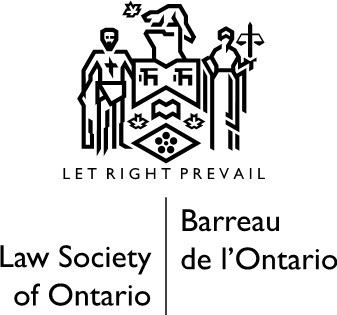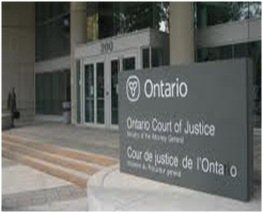TORONTO – A series of strong recommendations designed to make the Law Society’s regulatory and hearing processes more culturally competent and culturally safe for Indigenous Peoples was approved today by Convocation.
The recommendations were put forward in a report from the Review Panel, which was appointed last June by Law Society Treasurer Paul Schabas to identify issues and make recommendations on opportunities for the inclusion of Indigenous perspectives in Law Society regulatory and hearing processes.

Panel members included Law Society Benchers and two members of the Indigenous Advisory Group (IAG) to the Law Society: Dianne Corbiere, Bencher and Panel Chair; Robert Burd, Bencher; Teresa Donnelly, Bencher; Isfahan Merali, Bencher; Kathleen Lickers, Co-Chair of the IAG; and Chief Myeengun Henry, Co-Chair of the IAG.
Over the past 11 months, the Review Panel reviewed extensive key resources, conducted interviews and consulted with a wide range of individuals, including experts from the Indigenous community, the chair and vice-chair of the Law Society Tribunal and a number of Law Society Professional Regulation Division staff.
In its report, the Review Panel made nine far-reaching recommendations, including the need to:
- establish and maintain a culturally competent regulatory process and a culturally safe environment;
- establish better communication and engagement with complainants from Indigenous communities;
- create a trusting relationship with Indigenous communities through partnering and exploring ways to increase access to justice;
- build appropriate capacity within the Professional Regulation Division and ensure it is appropriately resourced for major cases and those involving vulnerable individuals;
- ensure cultural competence for staff investigating complaints involving Indigenous licensees or complainants and explore ways to incorporate principles of Indigenous Legal Systems in Law Society processes;
- create permanent, internal structures and supports to appropriately manage investigations and prosecutions of licensees who are the subject of complaints from Indigenous Peoples — and investigations of Indigenous licensees; and
- enhance guidance and education for lawyers and paralegals who serve Indigenous clients who have experienced trauma.
The panel also recommended that the Law Society Tribunal and Tribunal Committee:
- explore ways to incorporate Indigenous Law principles and apply them in appropriate cases, with the help of Indigenous Law experts; and
- provide adjudicators with ongoing training in the history of Indigenous Law in Canada, as well as Indigenous methods of dispute resolution, Indigenous ceremony and protocols, the Independent Assessment Process and other relevant topics.
Independent Reviewer
Included in the Review Panel’s report is a report from former Assembly of First Nations National Chief and Independent Reviewer Ovide Mercredi, who was appointed last summer by the Treasurer to engage with the First Nations community in Treaty 3 and Nishnawbe Aski Nation treaty territories in Northern Ontario.
Like the Review Panel, he recommended that the Law Society focus on the need to become culturally competent. He also suggested that the Law Society support broader changes in the interests of Indigenous communities and recommended that the Law Society support healing strategies for Residential School Survivors.
As Mercredi states in his report: While the hope remains that the Law Society of Ontario will radically alter its understanding of First Nations histories, cultures, societies, customs, traditions, world views and internal sovereignty, the time for reform is present and imminent. The days of the status quo or business as usual will not lead to reconciliation, nor will the relationship with First Nations be provided the requisite priority and appropriate actions and responses.
Commitment to Reconciliation
“I’m very grateful to members of the Review Panel and Independent Reviewer Ovide Mercredi, for their commitment to and hard work on this critical initiative,” says Law Society Treasurer Paul Schabas. “The work was challenging and difficult. These recommendations provide an opportunity for the Law Society to do better for Indigenous communities and Indigenous Peoples. It is another step in our efforts to achieve reconciliation and respond to the Truth and Reconciliation Commission’s Calls to Action.”
“The panel’s recommendations align with the Law Society’s commitment to reconciliation,” says Dianne Corbiere, Law Society Bencher and Chair of the Review Panel. “We began this process through the adoption of the Indigenous Framework in 2017 and it is critical that Indigenous communities see their identity, culture and laws reflected in the Law Society and its processes.”
“This review underscores the need for those involved in the administration of justice to pay much more attention to how we serve Canada’s Indigenous Peoples,” says Kathleen Lickers, Review Panel member and Co-chair of the Indigenous Advisory Group to the Law Society. “This is the beginning of important, transformative change.”
The Law Society regulates lawyers and paralegals in Ontario in the public interest. The Law Society has a mandate to protect the public interest, to maintain and advance the cause of justice and the rule of law, to facilitate access to justice for the people of Ontario and act in a timely, open and efficient manner.
SOURCE The Law Society of Ontario







